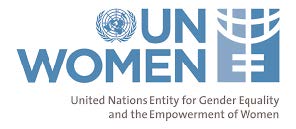UNITED NATIONS (TIP): Following a milestone year in international development in which world leaders endorsed the 2030 Agenda for Sustainable Development, the 60th Session of the UN Commission on the Status of Women (CSW) will focus firmly on implementation of the ambitious agreement. The Sustainable Development Goals (SDGs) adopted by UN Member States in September 2015 are a universal roadmap for people and planet, addressing the key challenges of the 21st century, such as poverty, inequality and climate change. Gender equality and the empowerment of all women and girls is a goal in itself, and recognized as a central means to achieving the SDGs. Success depends on rigorous implementation.
The Commission is the single largest forum for Member States and other stakeholders to commit to new actions for advancement of women and their empowerment. This year’s CSW is the first after the adoption of the new 2030 Agenda for Sustainable Development. The session thus will build on the momentum garnered in September 2015 when, in conjunction with the adoption of the 2030 Agenda for Sustainable Development, more than 90 governments answered UN Women’s call for action to “Step It Up for Gender Equality”. World leaders pledged measurable actions to tackle structural barriers and remaining challenges to the achievement of gender equality in their countries. Civil society and businesses leaders complemented these pledges committing to combat stereotypes and shift practices towards fostering greater equality and opportunity.
“This gathering of so many of the key partners in the implementation of Agenda 2030 makes this a crucial opportunity to combine our strengths and align decisively around the central issues for action,” said UN Women Executive Director Phumzile Mlambo-Ngcuka.
The priority theme for the 60th session will be women’s empowerment and its link to sustainable development.
Discussions by governments will focus on creating a conducive environment for gender-responsive implementation of the 2030 Agenda for Sustainable Development, through actions to ensure enabling laws and policies, solid institutional infrastructures, adequate financial resources, strengthening of participation mechanisms, and investment in sex-disaggregated data, to guide national action.
Research underlines the benefit of women’s empowerment and gender equality for societies everywhere: for instance, if women played an identical role to men in labor markets, as much as USD 28 trillion could be added to global annual GDP by 2025. When women are at the peace tables, their participation increases the probability of a peace agreement lasting at least two years by 20 per cent, and 35 per cent over 15 years. And a child born to a mother who can read is 50 per cent more likely to survive. Yet, global reviews undertaken in 2015, during the 20 years’ commemoration of the historic Beijing Conference, revealed while there has been progress on women’s rights and gender equality, it has not been enough. Today, only one in five parliamentarians is a woman and women continue to earn less, have fewer assets and bear the burden of unpaid work and care.
Violence against women continues to affect one in three women, making it one of the most widespread human rights violations. The Commission will evaluate progress in the implementation of its agreed conclusions of 2013, on ending violence against women and girls, a pandemic that also comes with enormous economic costs to society.
The high-level meeting from 14-24 March underlines the determination of governments and activists to move the needle on women’s rights and gender equality. This year over 1,000 NGOs have pre-registered more than 8,100 of their representatives for the meeting. More than 200 side events will be hosted on the UN premises by Member States and UN entities, many of them in collaboration with civil society, about 150 of them in the first week of CSW alone, alongside 450 parallel events by NGOs, in the vicinity of the UN.
